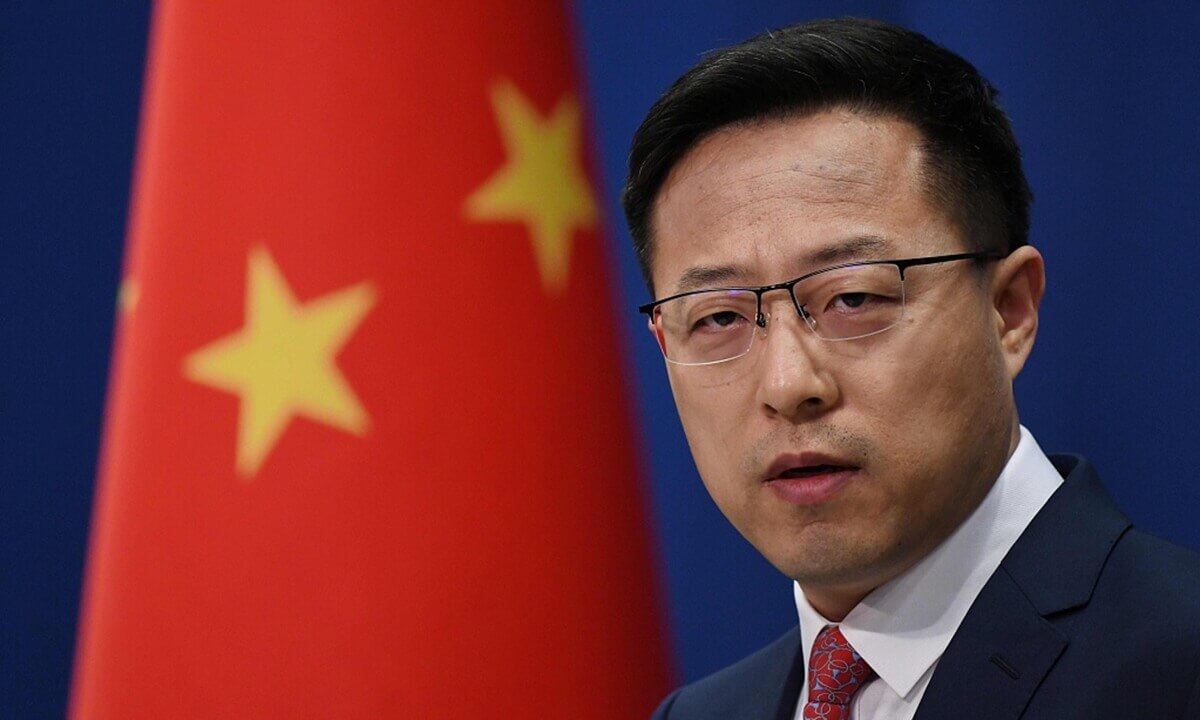China said on Tuesday that it has no interest in Canada’s internal affairs, after Prime Minister (PM) Justin Trudeau accused the Asian giant of meddling in Canada’s elections.
“We have no interest in Canada’s internal affairs,” Chinese Foreign Ministry spokesperson Zhao Lijian told reporters during his regular press conference.
“Relations between countries can only be built on the basis of mutual respect, equality and mutual benefit. China-Canada relations are no exception,” he said. The spokesperson thus called on Ottawa to “stop making remarks that would harm bilateral relations.”
Canadian intelligence officials warned Trudeau that China has allegedly been targeting Canada with a vast campaign of foreign interference — including funding 11 federal candidates running in2019 election, according to sources. #cdnpoli
— Kamil Karamali (@KamilKaramali) November 7, 2022
Story: https://t.co/37JcU9nxTg pic.twitter.com/QwaElXzH6S
Zhao’s comments come after Trudeau on Monday accused China of playing “aggressive games” with democracies. His comments came in the wake of a Global News investigation that found that China covertly funded a clandestine network of at least 11 candidates during the 2019 federal election, including paying candidates associated with the Chinese Communist Party (CCP) through mediators and placing agents in the offices of Members of Parliament (MPs) to influence policy.
The Canadian Security Intelligence Service (CSIS) briefed Trudeau and other senior officials about how China was attempting to subvert Canada’s democratic process. They also alleged that the Chinese Consulate in Toronto secretly transferred roughly $250,000 to the 11 candidates and some of its staff members via an Ontario Member of Provincial Parliament (MPP) and a federal election candidate staffer. However, sources said that the intelligence service could not conclude whether China’s efforts were successful in influencing the results.
The intelligence service also declared that China conducts more foreign interference campaigns than any other country, noting that threats to Canada increased in 2015, when Chinese President Xi Jinping’s United Front increased its network overseas. Experts believe that countries like China, Iran, and Russia have been taking advantage of Canada’s outdated espionage laws, mounting massive interference campaigns through loopholes.
His remarks came after a report that said Beijing had funded a "clandestine network" of candidates in a recent ballot, and days after authorities began investigating illegal Chinese police stations in the Toronto area.
— Gurbaksh Singh Chahal (@gchahal) November 8, 2022
“Unfortunately, we’re seeing countries, state actors from around the world, whether it’s China or others, are continuing to play aggressive games with our institutions, with our democracies,” the PM told reporters in Montreal.
“We have taken significant measures to strengthen the integrity of our elections processes and our systems, and we’ll continue to invest in the fight against election interference, against foreign interference of our democracy and institutions,” he asserted.
The Canadian PM also cited the creation of the National Security and Intelligence Committee of Parliamentarians in 2018 and highlighted that Ottawa is “constantly working with our intelligence committees and officials” to improve national security.
“We will continue to make the investments and changes necessary to both hold up our rights, our freedoms and our values as Canadians while keeping us safe from those who would do harm to those values and rights and freedoms,” Trudeau asserted, adding, “The world is changing and sometimes in quite scary ways, and we need to make sure that those who are tasked with keeping us safe every single day are able to do that.”
Trudeau has been warned for years of China's clandestine efforts in Canada. In response to foreign interference concerns, Trudeau's response was to fund misinformation research bureaus to slander his opponents, and to restrict conservative third party advertising. https://t.co/qLaV19vjYX
— Stephen Taylor (@stephen_taylor) November 8, 2022
Chinese state-owned media outlet Global Times (GT) called Trudeau’s allegations “absurd” and blamed the United States (US) for exerting “unprecedented pressure on its allies to keep its alliance system from falling apart” and for propagating the “China infiltration” theory.
“Ottawa has no other choice but to follow Washington’s clamours for getting tougher on Beijing,” it said, describing it as a US “pawn.” It reminded Canada that “the deterioration of relations with its second largest trading partner” will be “hugely damaging to its own interests.”
Chinese observers cited by the media house pointed out that Washington is stepping up its Indo-Pacific Strategy, “which aims to contain China’s peaceful development,” as Washington, it claimed, is “getting more worried about the growing disunity of its allies.”
In this regard, an editorial on the GT website said, “as an independent sovereign country, Canada should have its own choices.” It thus declared, “Canada is not the 51st state of the US, and has no obligation and should not be willing to be Washington's political tool and vassal. It is certain that if Canada follows the US in its foreign strategy, its value as a sovereign state will be severely depreciated.”
Ties between Canada and China have taken a severe downturn since 2018, when authorities in Vancouver arrested Chinese telecom giant Huawei Chief Financial Officer (CFO) Meng Wanzhou over a bank fraud warrant issued by then-US President Donald Trump. In retaliation, Chinese authorities arrested former Canadian diplomat Michael Kovrig and Canadian entrepreneur Michael Spavor for endangering state security and indicted them in June 2020 on espionage charges.
Though the two countries conducted a prisoner exchange involving the three individuals last September, Trudeau has continued to take a firm stand against China. Canada has repeatedly condemned China’s actions in Hong Kong and Xinjiang. Meanwhile, China has criticised Canada’s relationship with its Indigenous population and warned of punitive trade measures.
Trudeau, for his part, has said that while “we’re going to have to continue to challenge China,” the two sides must also find avenues for cooperation, particularly with regard to climate change.

